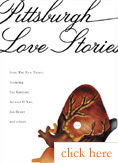From the Editors
January 4, 2005
Compulsively, I keep checking the updates of the earthquake and resulting tsunami in Sri Lanka, Indonesia, India, and other regions and coastal areas of Southeast Asia.
I once had a geometry teacher who said that whenever a problem became too hard to solve, all the factors should be stretched to one extreme or the other. That’s usually where the answers become clear. The size of a disaster like this — and it keeps growing each time I return to check, the various elements toppling over one another to prove most destructive — has been best expressed by Enzo Boschi, the head of Italy's National Geophysics Institute. On Italian state radio, he likened the force of this “megathrust” to one million atomic bombs saying, “All the planet is vibrating.”
A God-given metaphor like that can sit on the dinner table a long time before anyone figures out the best way to cut it open.
Kerry Sieh, a geologist with the California Institute of Technology, said the vibration caused “the planet to wobble a little bit” — pulled Earth right out of its natural rhythms — “but it's not going to turn Earth upside down.”
Haruki Murakami published a collection of stories a few years back called After the Quake, all six stories taking place in the months following the 1995 Kobe earthquake. Though the literal aftermath of the quake appears only occasionally, the resultant shuddering courses through every action, as if the supreme frustrations of these surviving characters lead them to situations of climax and anti-climax, either disrespectful in their demand for answers or disrespectful for their apathy to seek any out. That shuddering manifests like Korach’s punishment — he who, frustrated with walking the desert, separated himself from the community and challenged Moses’ leadership — so that with every story Earth prepares to crack open and grab the words right off the page. The survivors all run away screaming: “Lest the Earth swallow us!”
There is no literal magic in the book, save one story about a super frog. Still, ethereal, mystical connections seem to be pulsing behind every page, yet when you turn to look you only find more words, more human stories on the other side.
Around the same time, Murakami wrote “Underground,” a journalistic account of the 1995 subway gassings in Tokyo. His goal, to track down and interview each living victim, surviving relative, and member of the religious cult responsible for the act, yielded a very human and thorough side to the calamity, dropping the madness down to a melancholy simmer — one perhaps even more respectful of the situation than any other account. Doing so provided an appropriate outlet for the emotions without denying their realness.
In terms of actual aide, writing can really be a worthless profession, especially when it isn’t tempered with thoughtfulness. We are always living in the aftermath of something, and stringing words together is nothing more than grabbing actual events and placing them somewhere new; in an attempt to explain them, or prove they cannot be explained, or to re-contextualize them, or simply to bolt down as many details as possible before they slip off and away into a colored and tainted version of memory.
With this new version (vision?) of Newyinzer.com, what I expect is writing that seeks to gather bits of environment with that kind of respect, and if disrespect seems to be the only way to tell the story, then let it be done with a firm and principled hand. That is not a call against dirt, mess, grime, and filth, only a request that it be handled correctly and with an understanding of just how large a force is actually needed to turn the world upside down.
–Eric Lidji




